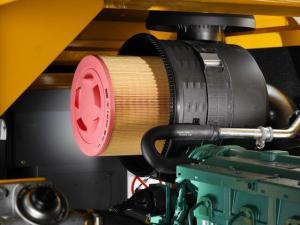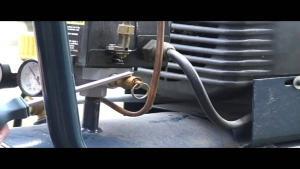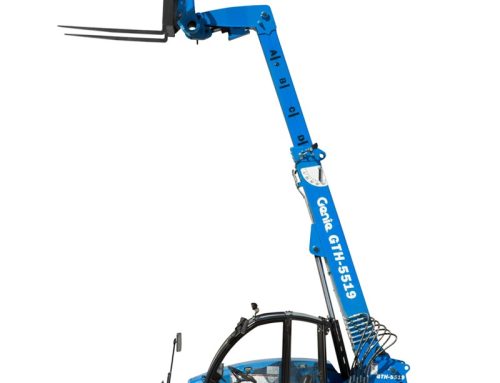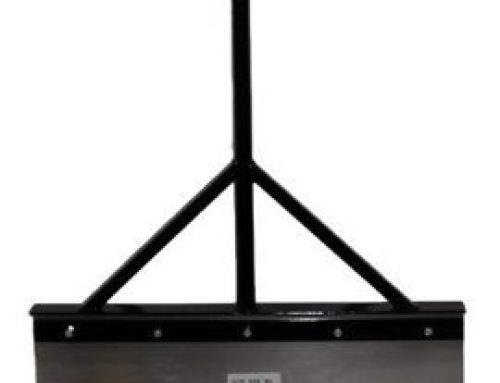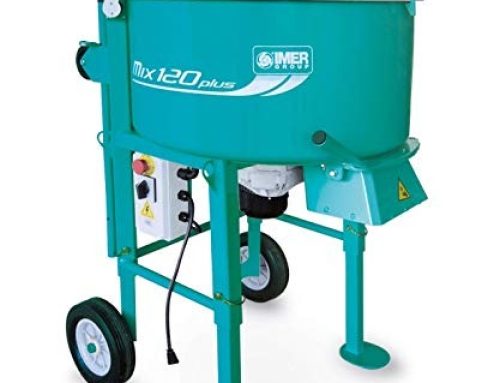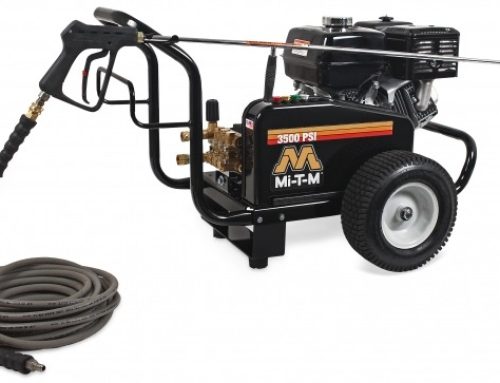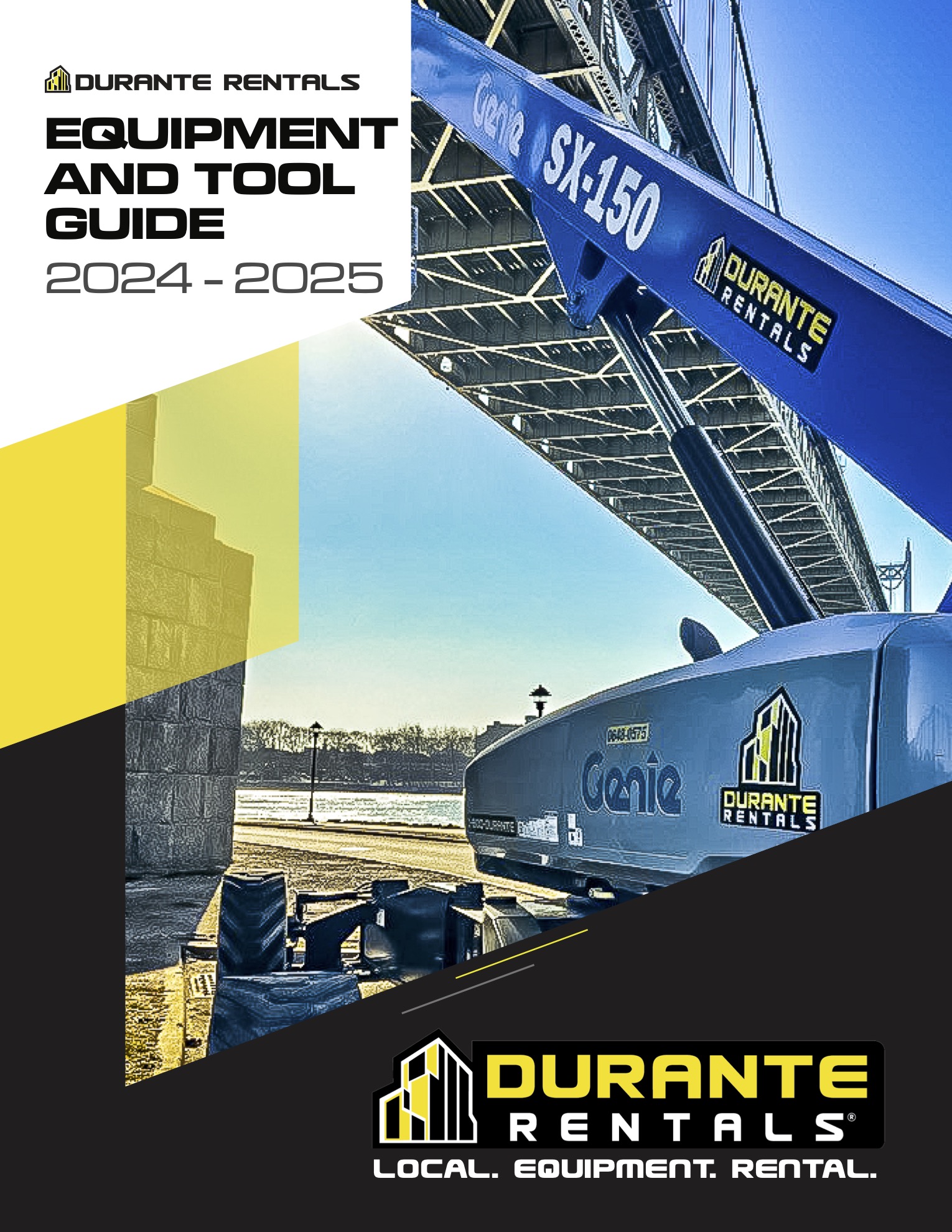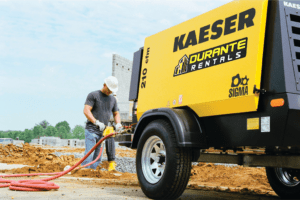 If you want to get the most out of your air compressor, make sure to keep up with routine maintenance and read our guide to air compressor maintenance. It’s that simple. “As with any complex machine, an ounce of prevention is worth a pound of cure,” explains Jessie Pettit, Fleet Manager at Durante Rentals. “Regular and thorough maintenance can save you thousands of dollars and add years to the life of your air compressor.”
If you want to get the most out of your air compressor, make sure to keep up with routine maintenance and read our guide to air compressor maintenance. It’s that simple. “As with any complex machine, an ounce of prevention is worth a pound of cure,” explains Jessie Pettit, Fleet Manager at Durante Rentals. “Regular and thorough maintenance can save you thousands of dollars and add years to the life of your air compressor.”
The best practices listed below will help you get the most out of your air compressor. An important thing to remember is that air compressors can differ significantly from model to model, so make sure you check your owner’s manual or local dealer.
How often should I service my air compressor?
Upon purchasing a new air compressor, make sure to establish a maintenance regimen and then stick to it. You can find many free maintenance schedule templates online, but the following are good guidelines to stick to.
Daily Maintenance
Check oil levels
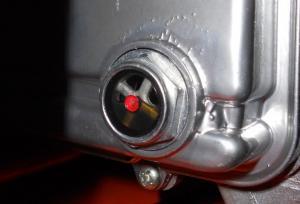 Much like a car, many air compressors come with a dipstick that will allow you to check your oil level. Other models may come with an indicator like the one below. For those machines, the ideal oil level will be at the center of the red dot. However, as long as the oil does not go below the dot, you shouldn’t worry.
Much like a car, many air compressors come with a dipstick that will allow you to check your oil level. Other models may come with an indicator like the one below. For those machines, the ideal oil level will be at the center of the red dot. However, as long as the oil does not go below the dot, you shouldn’t worry.
Look for oil leaks
Be wary of any steep drops in oil or the presence of oil residue on the bottom of the tank. Oil leaks can quickly cause serious issues to your air compressor’s components.
 Purge moisture from tank
Purge moisture from tank
A few times a week, slowly open your compressor’s release valve located at the bottom of the tank (see image) and drain out any excess moisture. This fast and easy procedure will help prevent pressure buildup and rusting of internal components. Frequency depends on how often the air compressor is used and the type of environment.
Listen for noises or vibrations
Strange noises may indicate several problems, from air leaks to engine trouble. Make sure that you pay attention when operating your air compressor and quickly address any issues you detect. If your problems persist, you should bring your air compressor in for service immediately.
Inspect hoses for air leaks
Air leaks in your hoses will affect your compressor’s performance and put undue strain on the rest of its components. Make sure to patch or replace your hoses as soon as you detect a leak.
Inspect belts
Loose belts can cause your compressor to squeal and create issues with low compression. To check your belt’s tension, locate and press down on the slackest part of the belt with roughly five pounds of pressure. Ideally, it should move approximately half an inch.
Our guide to air compressor maintenance suggests weekly maintenance as well as monthly maintenance.
Weekly Maintenance
Monthly Maintenance
Test release valves
Every air compressor comes equipped with a valve that will pop and release air if the tank’s pressure gets dangerously high.
To test your release valve, turn on the air compressor and allow the pressure to build up for about half an hour. Then, locate the release valve. It should be a silver or gold valve sticking out of the tank, likely with a ring at the end of it. Finally, use a wrench to pull the release straight out. It should come out with some force, emptying the air from the tank.
Look for and tighten loose bolts
Over the course of normal use, your air compressor’s vibrations may cause screws, nuts, and bolts to loosen. This can lead to several problems down the line. Go over your air compressor, checking each bolt, and address anything that needs tightening.
Inspect connections for leaks
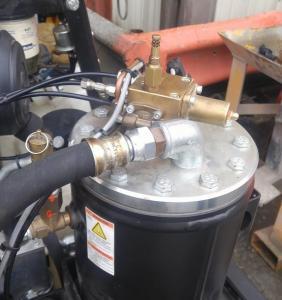 Leaks are one of the major drains on air compressor efficiency. A typical air compressor that has not been well maintained can have a twenty to thirty percent leak rate. Leaks can be easily detected with an ultrasonic leak detector. Listen to the headphones and hone in on the source of your leak.
Leaks are one of the major drains on air compressor efficiency. A typical air compressor that has not been well maintained can have a twenty to thirty percent leak rate. Leaks can be easily detected with an ultrasonic leak detector. Listen to the headphones and hone in on the source of your leak.
Once found, most leaks can be easily repaired by simply tightening a loose connection. However, some may require drastic action, such as replacing couplings, fittings, pipe sections, hoses, joints, drains, and traps. Leaks may also be a result of poorly applied or worn out thread sealant. In these cases, you should select new fittings, disconnects, hoses or tubing, and install them properly with appropriate thread sealant.
Annual Maintenance (Over 200 Hours)
Fully service pump and engine. It is a good idea to bring your air compressor into your dealer or service station once a year. Trained professionals will be able to change the oil, install new air filters, replace any worn compressor belts, and generally take stock of your machine and address any issues. For questions, inquiries about air compressor sales and rentals, or book a service appointment, visit DuranteRentals.com or call 1-800-DURANTE today! We hope you enjoyed our guide to air compressor maintenance.


